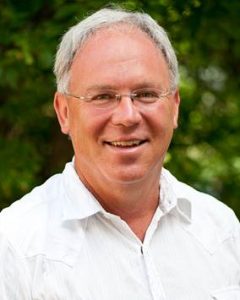 We are both sad and honored to announce that Rob Ament has retired after 18 years with WTI. Rob is one of the early pioneers of our Road Ecology program and, as Program Manager, has grown it into the world-renowned focus area it is today. Having spent his childhood exploring the Mississippi River, Rob developed his love of ecology early. He devoted his early career to remote and wild places in the western U.S. – working for the Forest Service in Alaska, which he describes as “stinky thick with grown bears,” and as a Wilderness Ranger in the greater Yellowstone.
We are both sad and honored to announce that Rob Ament has retired after 18 years with WTI. Rob is one of the early pioneers of our Road Ecology program and, as Program Manager, has grown it into the world-renowned focus area it is today. Having spent his childhood exploring the Mississippi River, Rob developed his love of ecology early. He devoted his early career to remote and wild places in the western U.S. – working for the Forest Service in Alaska, which he describes as “stinky thick with grown bears,” and as a Wilderness Ranger in the greater Yellowstone.
In the off season, Rob wintered in Bozeman, where he took graduate courses at Montana State University. He officially started a master’s in plant ecology, along with a new job in conservation, in 1993, investigating which plants communities reestablished after wildfires. The Yellowstone fires of 1988 were the perfect study subject, and park managers were relieved to learn that native plants, not invasive weeds, were returning to Yellowstone post fire. Rob’s work helped prove that fires are a natural part of the ecosystem – even early in his career, he was on the cutting edge.
Rob spent the next 12 years doing conservation work with American Wildlands, which he describes as “the first NGO to worry about corridors and connectivity.” It was during this period that he first collaborated with WTI, studying the impact of Interstate 90 on the animal corridor out of Yellowstone. That project led to the construction of animal underpasses at Bear Canyon, just east of Bozeman, Montana, and paved the way for Rob’s future position as WTI’s Road Ecology Program Manager.
In 2005, after six years as the Executive Director of American Wildlands, Rob decided to make a career move. He was offered jobs at WTI and the American Wildlife Society but was asked to start immediately. Abandoning his plans for a winter-long skiathon, Rob accepted both jobs – devoting half his time to conservation and half to research. He was determined to keep not just his love of research, but advocacy for implementation as well.
Rob became part of an iconic team when he joined the early founders of the WTI Road Ecology program Amanda Hardy, Tony Clevenger, and Marcel Huijser. “Bozeman was the center of the idea of road ecology,” remembers Rob, “Matt Blank started looking at aquatics, I started looking at roadsides. It was called Road Ecology within a couple of years.” Rob highlights a wide variety of projects on which he worked, from hill stabilization with waste wool blankets, sequestering carbon in roadside soils, and building smartphone applications for wildlife-vehicle collision (WVC) data collection, to incorporating fiber reinforced polymers (FRP) into animal crossing structures, and managing roadside habitats for bees and butterflies. “I really had the most fascinating projects.”
“WTI was a great place for me,” says Rob. “If you were curious and could put together a research proposal, you could explore a multifaceted field.” WTI is also a collegial space. “There are no weird dynamics at WTI – people have loved my crazy ideas. I’ve always felt supported here.” He notes that’s true of his work with a plethora of MSU professors too. “I really am grateful for the opportunities I’ve had.”
WTI’s focus on applied research has also suited Rob. The results of good research can be implemented right away, which he finds satisfying, and he’s proud of what he’s built at WTI. “The world is finally paying attention to road ecology, especially the wildlife component. It’s sexy.” He points out that as the last unfragmented landscapes start to see their first 4-lane superhighways, WTI publishes research on effective habitat connectivity solutions. “If you do the work, do it well. That’s what we’re all about.”
Rob will continue conservation work through the Center for Large Landscape Conservation (CLLC), where he has worked part-time since 2008, shaping policies that influence ecological connectivity and landscape integrity. Within days of retiring from WTI, Rob traveled to Thailand to investigate road network impacts on Asian elephants, a project sponsored by CLLC. A Borneo trip is also on the horizon. “It’s always some work and some play,” says Rob. “Looking at new highways and developing rainforests, but also seeing elephants and wild orangutans, eating good food, immersing in other cultures, and experiencing new ecologies.”
For play, he’s planned a 250-mile bike ride across Missouri with his siblings and is looking forward to an intensive Spanish immersion program.
At Rob’s retirement celebration last month, WTI Executive Director, Dr. Kelvin Wang, expressed deep gratitude to Rob for his phenomenal work and dedication. “Rob has worked hard to establish a robust Road Ecology program over the last decades that is recognized both in the U.S. and abroad,” said Dr. Wang. “His team will continue building on the relationships Rob developed and expanding on the program long term.”
